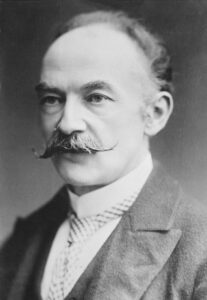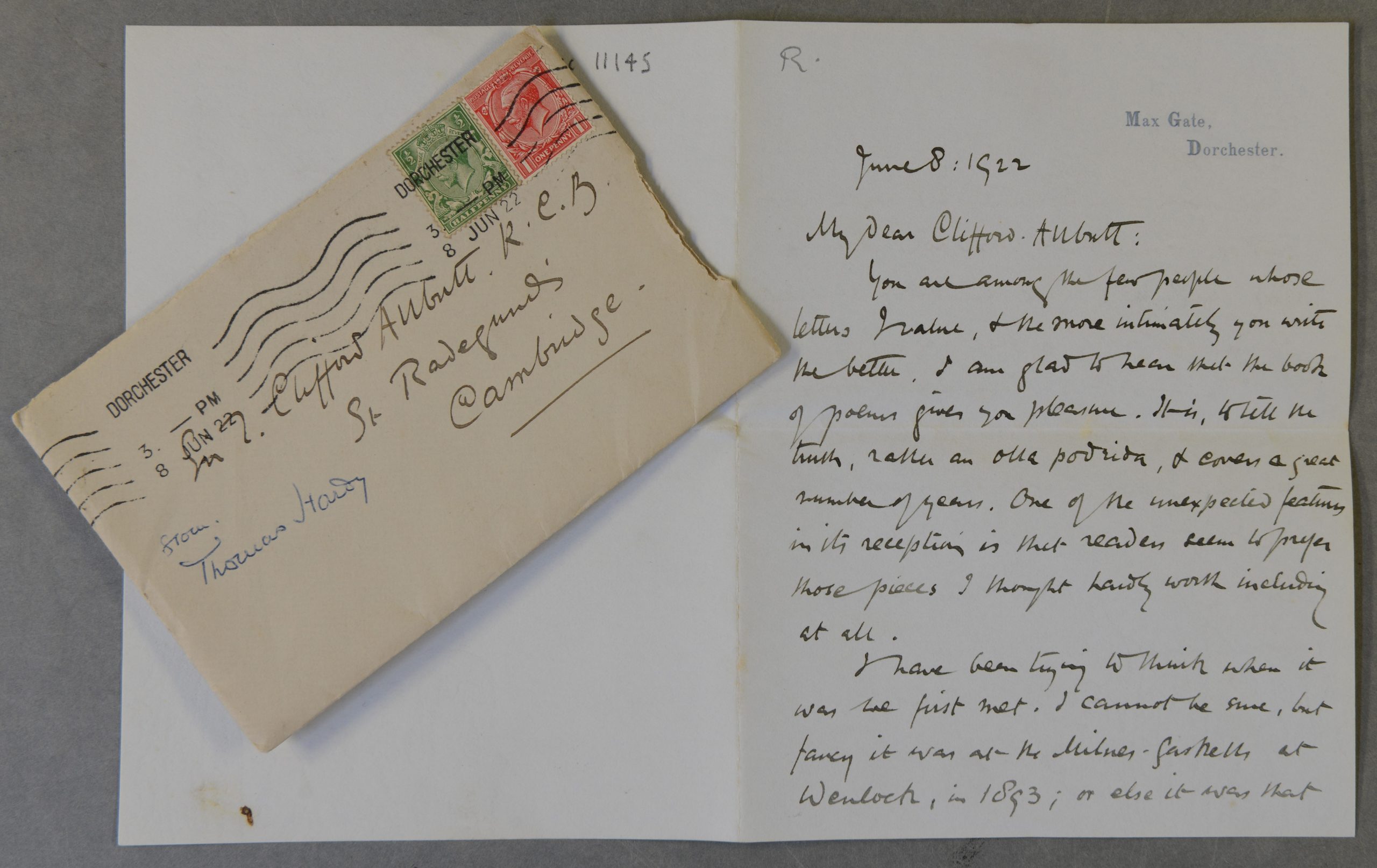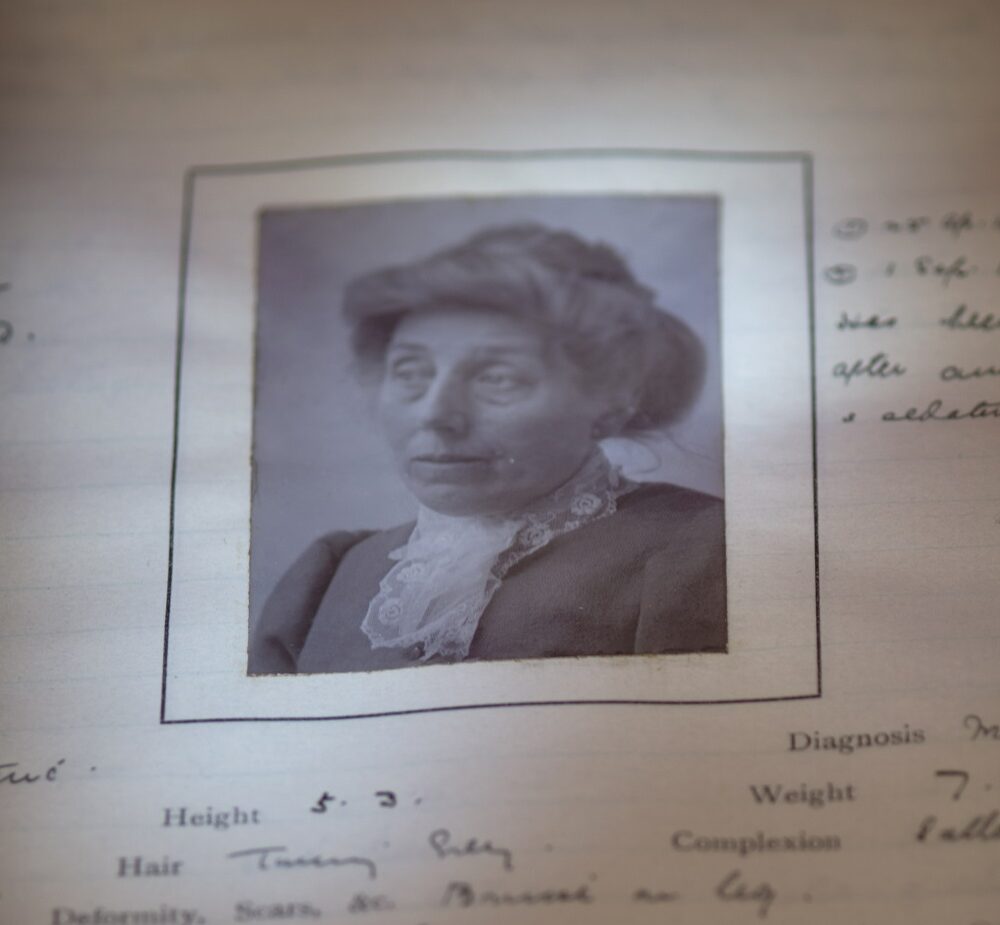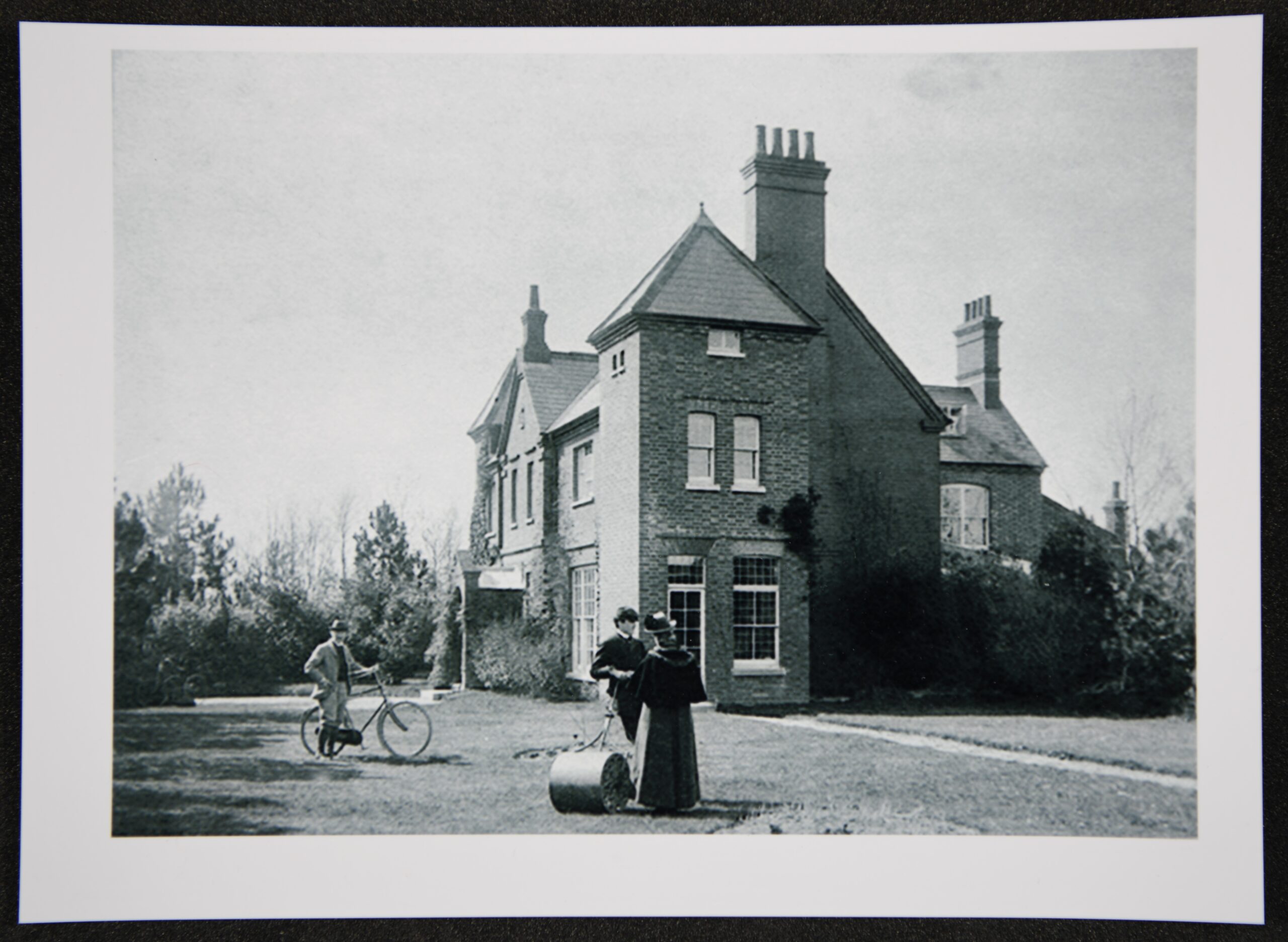In March, Dorset Archives Trust held a series of lectures relating to Thomas Hardy, exploring different themes of his life, his work and his interests. The lectures were held to help fund-raise for our Thomas Hardy project and to demonstrate the multi-faceted nature of one of Dorset’s most famous sons. Dorset Archives Trust Vice-Chair, Sara Loch, has provided us with her thoughts about these lectures, and how they have changed her mind about Hardy…
—

I have to rather sheepishly admit that I am not a Thomas Hardy fanatic. Being made to read the Mayor of Casterbridge at school did not help and I perceived his novels to be depressing, so avoided them; despite loving both film versions of Far from the Madding Crowd!
So I wasn’t certain that I was necessarily looking forward to watching and listening to the three fundraising lectures on Hardy put on by Dorset Archive Trust, but I was asked to help with hosting them on Zoom so I naturally attended them all.
I needn’t have worried at all! I was spellbound during each one of them; they were all different in style and content and they all illuminated a different facet of Hardy, his life and world.
The first lecture was a dual one by Professor Angelique Richardson and Dr Paul White titled ‘Thomas Hardy and Charles Darwin: lives in letters’. As far as we know they did not correspond with each other, but they both wrote copious letters which illuminate their scientific interest, not something I had associated with Hardy!

—
A week later we had Dr Tracy Hayes talking on ‘Hardy, Herrison and Nineteenth-Century Insanity’, which started with horrifying details of the treatment of the insane in the Georgian period before progressing to the slightly more humane Victorian systems, and Hardy’s interaction with patients at Herrison Hospital, and his wife Emma.

—
The final talk titled ‘Reconstructing Wessex’ was given by Professor Kester Rattenbury. which I think I would say was based on the premise of once an architect, always an architect! Using the documents in the Dorset History Centre, Professor Rattenbury showed how Hardy built up his landscape of Wessex and communicated its relationship with the people who inhabited it.

—
All three talks were fascinating examples of why you shouldn’t judge a man by his books! Will I go back and read Hardy’s novels? I don’t know, but I do know that I am now interested in him as a person, and I will be going to Max Gate to see what Hardy built.
Dorset Archives Trust would like to thank all the speakers for their wonderful talks, and if you are interested in helping Dorset History Centre preserve and catalogue the archives of Thomas Hardy, then please do consider donating to our ongoing fundraising campaign. We thank-you for your donations!

